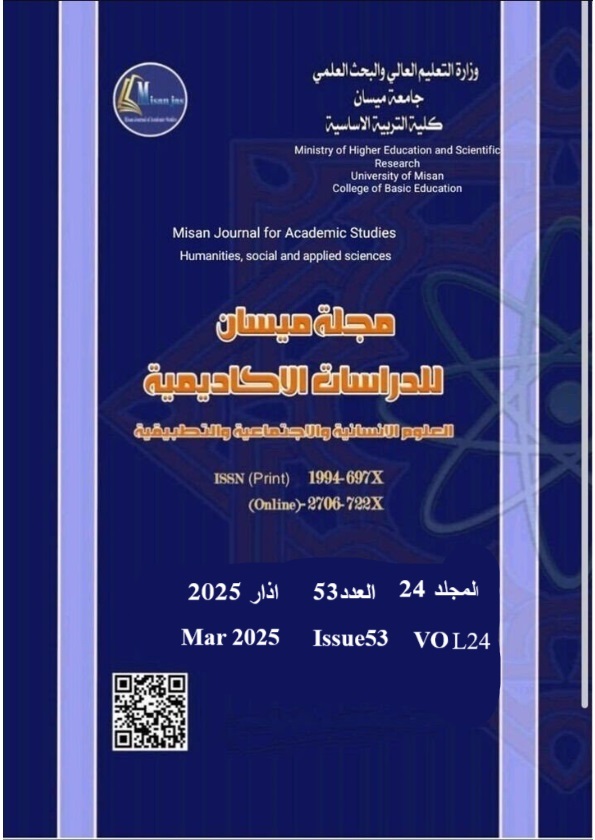EFFECT OF HYPOCHLOROUS ACID ON SURFACE ROUGHNESS AND WETTABILITY OF ZINC OXIDE EUOGENOL IMPRESSION PASTE
Abstract
Aim: Dental impression materials may be infected when touched with patient plaque, saliva, and blood and immediately contaminated with potentially harmful germs. The spread of infection can be prevented through disinfection of the impression materials. The disinfection solution may change the impression materials' properties, The study goal was to investigate the effects of two disinfectants(2% glutaraldehydes (G.A.) and hypochlorous acid(HOCl) 200ppm,400ppm for ten minutes) on the wettability and surface roughness of the zinc oxide-eugenol (ZOE) impression material.
Materials and Methods: Eighty zinc oxide- eugenol impression material specimens were randomly classified into four groups for each test ten specimens ,A custom-produced mold, a circular in shape 2mm thickness and 20 mm in diameter made. A profilometer device was used for the surface roughness (Ra) measurement, and a goniometer device was used for the contact angles measurement to determine Wettability, The Statistical analysis was done using IBM's Statistical Package for the Social Sciences.The One Way Analysis of Variance (ANOVA) test was used to data analysis.
Results: The results of this study revealed that HOCl and 2%glutaraldehyde demonstrate no effect on the wettability and surface roughness of zinc oxide-eugenol impression paste compared to the control group (P>0.05).
Conclusion: Considering the limitation of this investigation, the hypochlorous acid (200ppm 400ppm) is recommended for use as an efficient disinfection without a negative impact on the surface roughness and wettability of the ZOE impression paste
Downloads
Copyright (c) 2025 (Humanities, social and applied sciences) Misan Journal of Academic Studies

This work is licensed under a Creative Commons Attribution-NonCommercial-NoDerivatives 4.0 International License.
The copyright is also the copyright of the magazine only.
All articles published in our magazine are subject to license terms
Creative Commons Attribution(CC BY-NC-ND 4.0) This license permits the content to be reproduced, redistributed and reused in whole or in part for any purpose free of charge, without any permission from the author(s), researcher or student.
Works submitted to Maysan Journal of Academic Studies for publication in the journal (CC BY-NC-ND 4.0) license terms. Where available content can be shared, distributed and replicated provided there is no commercial profit and appropriate credit must be given to the original source through sources or citations. It is mandatory to review any material used from other sources including shapes, tables, and images for re-use under the terms of the Creative Commons License (CC BY-NC-ND 4.0).Provided that there is no modification to the original content



